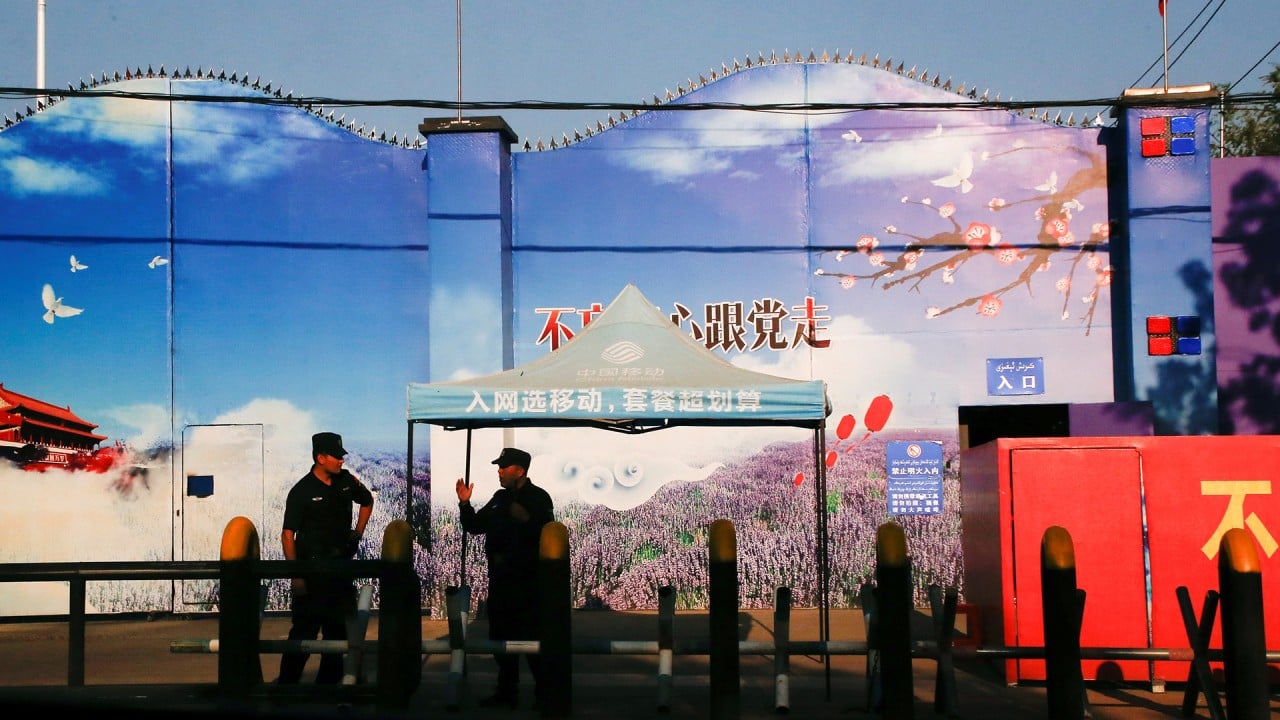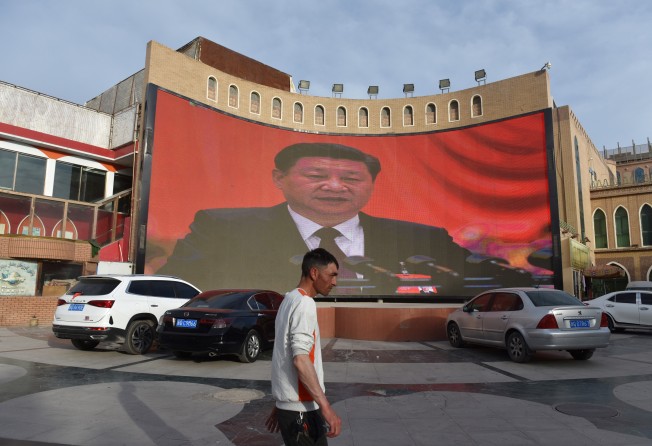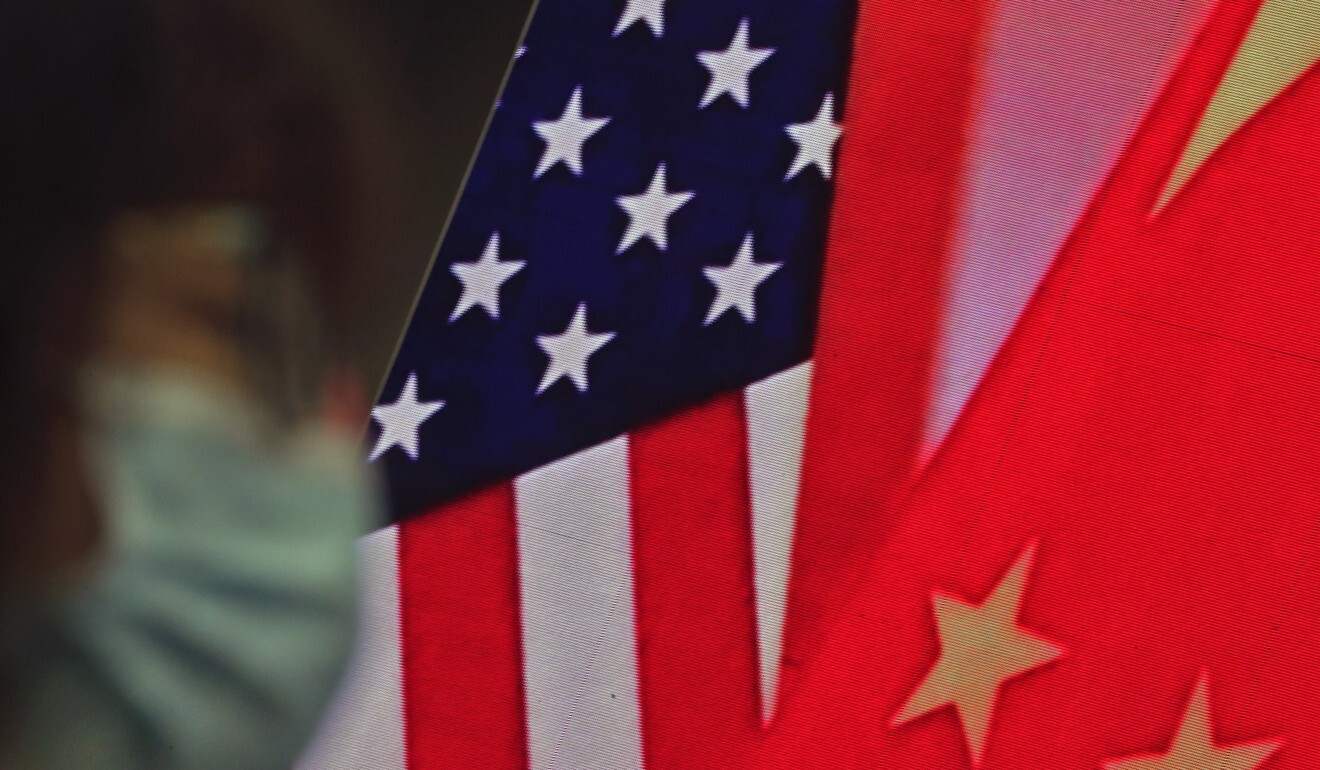
02:27
US declares China has committed genocide in its treatment of Uygurs in Xinjiang

The United States has backed an independent Australian lawmaker’s proposal for Canberra to ban the import of all goods made through forced labour in China, including those produced in its westernmost region of Xinjiang, where the United Nations estimates about 1 million Uygur and other Muslim minority citizens are being held against their will in so-called re-education camps.
While China has been accused of subjecting detainees to political indoctrination and forced labour in the camps, Beijing has denied this, insisting that its “vocational education and training centers” respect minorities’ religious beliefs and customs, and reduce poverty and violent extremism.
The US State Department, in a submission to an Australian parliamentary committee discussing the draft bill, said it supported the goals of the legislation. Together with Britain and Canada, the US has in recent weeks moved to ban goods that it claims are linked to Uygur forced labour and expressed alarm over testimony from dissidents alleging other human rights violations in the camps, including forced sterilisation, systemic rape and torture.
While numerous groups in Australia – including those advocating for Uygurs – have supported the proposal, others in submissions to the committee have criticised the bill’s singling out of China and blanket ban on all goods made in Xinjiang, irrespective of any proven links to forced labour.
Human Rights Watch and the Australian Council of Trade Unions have expressed support for the bill’s aims, while suggesting the proposals be expanded to all goods linked to forced labour, regardless of country of origin. India was home to the largest number of people living in modern slavery in 2018, with an estimated 8 million slaves, followed by China, Pakistan, North Korea and Nigeria, according to the Global Slavery Index produced that year by the Walk Free Foundation.
David Brophy, a senior lecturer in modern Chinese history at the University of Sydney, said given the legislation only named China, Beijing would issue a “predictable response” that “this is simply part of a Western campaign to delegitimise it and harm its economy” or “that Australia is only adopting this legislation to keep pace with American sanctions”.

02:27
US declares China has committed genocide in its treatment of Uygurs in Xinjiang
“It’s essential, I believe, that Australia is able to respond convincingly to such accusations, and demonstrate that its actions reflect a genuine desire to eliminate forced labour from global supply chains,” he said. “It’s very hard to do that if the legislation only names one country.”
The bill, which was introduced in December, is currently being examined by the Senate Foreign Affairs, Defence and Trade Legislation Committee, which is due to issue its recommendations on the proposals in May. It will need the support of the governing Liberal-National Coalition or main opposition Labor Party before it can be tabled in parliament for a vote.
Although Foreign Minister Marise Payne has publicly raised concerns about conditions in Xinjiang, Canberra has not given any indication that it intends to support the bill.
Independent senator Rex Patrick, who drafted the bill, said he believed there was some bipartisan support for his proposals, though he acknowledged Canberra could be hesitant to further aggravate China-Australia ties, which have sunk to their lowest ebb in decades over the past year.
Patrick said his bill was intended to strengthen enforcement against forced labour and build on the growing international opposition to Beijing’s policies in Xinjiang.
“In some sense my bill seeks to act as a catalyst to reinforce what is happening internationally, to give Australia a spoke in the wheel that is directed at dealing with this awful situation that is taking place in Xinjiang,” he said.

A source within the Labor Party told This Week in Asia that it was awaiting the outcome of the committee’s inquiry before taking a position on the proposals.
“I know that there are Labor senators, I know that there are Liberal senators that support the bill,” Patrick said. “Whether or not they can get the bill across the line in their own party rooms is a matter for them. It will all depend on how the support plays out and that’s one of the important things in relation to the inquiry.”
The Australian Strategic Policy Institute – which is part funded by the Australian, US and British governments – said in a report last year that there was evidence of Uygur forced labour in the supply chains of more than 80 global brands.
Although Australia passed legislation aimed at combating modern slavery in 2018, the current law only requires companies with turnovers of A$100 million (US$77.6 million) or more to publish an annual report outlining the risks of forced labour in their supply chains and proposed remedies, with no penalties for non-compliance.
Chinese Foreign Minister Wang Yi on Monday has described US and Canadian claims of genocide in Xinjiang as “inflammatory accusations” and “simply malicious and politically driven hype” that had been “fabricated out of ignorance and prejudice”.
Canada’s House of Commons on Monday overwhelmingly passed a motion that accused China of carrying out genocide in the region, and called for the 2022 Winter Olympics to be moved from Beijing, putting pressure on Prime Minister Justin Trudeau and his Cabinet, who abstained from the vote.
Ottawa’s move followed the Trump administration’s announcement during its final hours last month that it had determined Beijing was responsible for “genocide and crimes against humanity” in Xinjiang.
Meanwhile, British Foreign Secretary Dominic Raab on Monday used his country’s return as a voting member at the UN Human Rights Council to call for the body to be granted “urgent and unfettered” access to investigate human rights violations in the region.